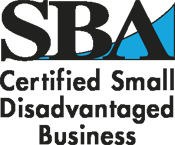Cloud storage is now one of the most common ways in which companies store their data. However, there is still the question of security since ransomware attacks, phishing attempts and hacks are on the rise as well.
So here are 6 ways that companies can boost their security for cloud stored data.
Unlock the future of intelligent applications with our cutting-edge Generative AI integration services!
1. Improve Access Management
In order to minimize any hacks or intrusions into your data in the first place, you should improve your access management. If you manage the number of people that are allowed to access the data in the first place, you’ll cut down on theft. You will be able to reduce the phishing attempts or hacks that can originate from a certain number of points. By doing that, you will automatically make your data more secure.
Multi-Factor Authentication
A great way to minimize access to critical data is to implement multi-factor authentication. Login credentials may be compromised without cloud security, so you need to ensure that they aren’t the only factor for access.
Multi-factor authentication can be accomplished through a password, biometric authentication combo, or through a device authentication protocol. You can also do this through iris scans or face detection, etc. These multi-factor authentication practices can greatly improve the chances of avoiding hacks.
Authorization Levels
You shouldn’t only improve access management, but prioritize which kind of data is accessible. For instance, the most critical data should only be available to people with the highest level of clearance. For those that don’t have the access, the data should be blocked off. You effectively improve your security by simply closing off critical data from tampering or theft this way.
2. Set Alerts
While you may have outsourced the management and storage of data to cloud providers, you should still feel personally responsible. Don’t accept the default security option in your management systems. If you’re offered better security for just a little more, take it. Also ask for customization in security if you can get it. That’s a decision you won’t regret later.
Frequently Monitor User Activity
Instead of just setting alerts and forgetting about everything else, monitoring user activity is essential. This is to prevent the stealing of data if someone gets access to credentials and even multi-factor authentication. If the system detects that unusual activity or non-compliant activity is taking place, the system should block the user.
There should also be protocols present that can deliver an incident response in the smallest time period possible. This will help to defend against most cyber threats and hacks.
Remove Inactive Users/Employees
This retouches on the point of minimizing access points. If your system has inactive users or still holds an account for a former employee, remove it immediately. That just presents an opportunity for hackers or cyber criminals to access privileged information.
To ensure that all inactive access points are quickly closed off, there should be a clear employee offboarding process. This should include the deletion and removal of all defunct accounts.
3. Data Encryption is Essential
If you’re storing critical data on the cloud, you should encrypt it right away. Encryption scrambles the data that is stored so that it doesn’t make any sense. Without the decryption keys, even if it’s stolen, it’s useless.
Certain cloud providers automatically encrypt data. However, that’s still not a standard practice for cloud security. So you should always ask your prospective cloud provider for that option.
You should also ask for encryption to meet the requirements of organizations like HIPAA, PCI-DSS, and GDPR. These organizations now hold sway over most tech companies that operate around the world. Hence, it’s in your interest to encrypt your data both legally and economically.
4. Restrict Outbound Traffic
You should monitor which virtual servers in your company are being used without authorization. This goes back to the point of minimizing access points to your data. Hence, any threat by hackers can be minimized if your company can control outbound traffic.
A lot of attacks can bait you to trick your firewall into opening outgoing connections. This often happens because outgoing connections are less scrutinized than inbound ones. Limiting outbound traffic can thus protect you against a lot of unforeseen threats.
5. Regularly Scan for Vulnerabilities
While you may scan for vulnerabilities in your own company, cloud servers often don’t do so. Hence, you need to press for this scanning to become a regular occurrence. This should include scanning hardware and software for vulnerabilities that can be patched easily. This should be a weekly or even a monthly occurrence. New patches from anti-virus companies, anti-hacking tools, etc. should all be a priority.
6. Improve Employee Training and Awareness
Cloud security isn’t just about installing certain programs and setting protocols. It’s also about raising awareness about the major cyberattacks and hacks that can happen to a company. Hence, it’s not just important to implement the best security software, but to raise awareness amongst employees.
Around 90% of all breaches are caused by human error. Hence, better equipped employees are more likely to handle those breaches better than those unaware. That’s why you should ensure that your cloud provider has an onboarding process in place for your employees. They shouldn’t just be aware of the software protecting their data. They should also be aware of the protocols in place to report an intrusion or to prevent an attack.
They should also be well versed in the most common types of cyberattacks that can target them.
Small Disadvantaged Business
Small Disadvantaged Business (SDB) provides access to specialized skills and capabilities contributing to improved competitiveness and efficiency.
Final Thoughts on Ways to Boost Cloud Security
Using these 6 tips to boost your cloud security will shield your data with an extra layer of protection. Not only will your data be more secure from theft, it may also be more secure from manipulation. Even if your data is stolen, certain tricks here will keep it from being used against your company.
Further blogs within this Cloud Security category.






